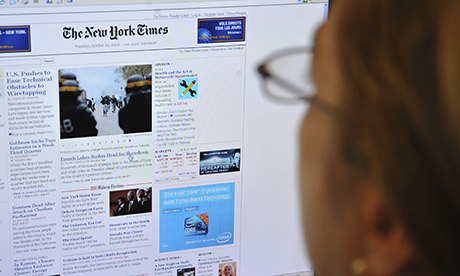Native advertising is the new paywall in media economics - but is it here to stay?
Many digital publishers have placed it at the heart of their business strategy - but there are concerns over transparency

In 1917, the American Federal Trade Commission settled a case with the Muensen Speciality Co., over an ad for its vacuum cleaner, which it presented as a favourable newspaper review. It was the first case where "advertorials" (or "native advertising" as they are now known) were identified by regulation in the US. Today you might expect to see something similar, but in the form of a viral link circulated round your social network, entitled "13 vacuum cleaners that suck in the wrong way, and one that doesn't".The Federal Trade Commission has however become so concerned about the new challenges of the digital advertorial that in December it organised a one-day workshop on the subject called Blurred Lines.When CBS's primetime current affairs show 60 Minutes recently ran an exclusive interview with Amazon boss and new newspaper owner Jeff Bezos, it pitched him no hard questions and allowed him to demonstrate his potty scheme for deliveries by drone.
Two question marks hang over native advertising, which will become more significant this year. Personally "native advertising" is not good as it represents ideologies and values which our society doesn't realise. Its probably the fact that this form of advertising persuades readers/viewers to talk about it thus gaining publicity for all the wrong reasons.
Internet streaming won't save music – the industry still relies on hits
The top three selling albums of 2013 were compilations, with One Direction's Midnight Memories selling less than 1m

Perhaps the most telling comment on the end-of-year music sales figures for 2013 – reporting a 0.5%
decline on the previous year – came from Kim Bayley, director general of the Entertainment Retail Association (ERA): "Music's performance is primarily due to a weak release schedule … Retailers will be hoping that labels deliver bigger hits in 2014." In other words, it doesn't matter that the internet has given loads more artists the opportunity to reach an audience – with a broader range of music – the survival of the record industry is as reliant on hits today as it's ever been, if not more. A closer look at the top 10 albums of 2013 in the UK illustrates this hit reliance – the top three albums are compilations: Now That's What I Call Music 84, 85 and 86.
- British artists continue to do well, being responsible for half of the top 10 albums of 2013 – and eight of the top 10 albums in the Official Artist Albums Chart.
- the total number of albums sold in 2013 was down only 6.4%
- the number of units sold was down 4.2% in terms of Digital British singles
- Only Passenger's Let Her Go (4) and Naughty Boy's La La La (5) managed to reach the top 10 of 2013.
Meanwhile the Wall Street Journal reports that data it reviewed showed that one major record company makes more per year, on average, from paying customers of streaming services such as Spotify ($16) than it does from the average customer who buys downloads, CDs or both ($14). This data appears to only apply to the US, however.
No comments:
Post a Comment